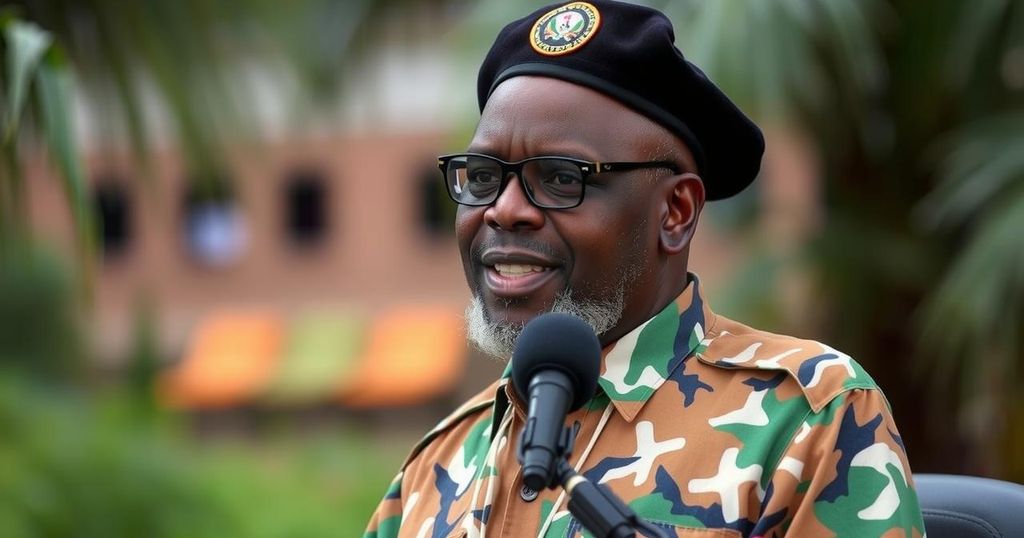Congo Bans Al Jazeera Following Controversial Interview with Rebel Leader
Congo has banned Al Jazeera after it aired an interview with M23 rebel leader Bertrand Bisimwa, who criticized the government. The government claims the network provided a platform for terrorism. Justice Minister Mutamba threatened severe penalties for journalists covering the M23. Critics argue this ban undermines freedom of expression, essential in conflict reporting.
The Republic of Congo has officially banned the Al Jazeera news network following an interview with Bertrand Bisimwa, leader of the M23 rebel group. The government, represented by spokesperson Patrick Muyaya, deemed the interview as providing a platform for a “terror organization” without legal accreditation. Al Jazeera’s coverage has provoked the ire of Congolese authorities, especially after Bisimwa accused the Kinshasa government of violating a ceasefire.
M23 is one of over 100 armed factions in eastern Congo, a region plagued by conflict and territorial disputes, notably near the Rwandan border. The group captured Goma a decade ago and has since expanded its control. The interview aired by Al Jazeera was labelled as “an apology for terrorism” by state officials, and authorities have signaled a crackdown on any reporting perceived as sympathetic to rebel movements.
In a further escalation, Justice Minister Constant Mutamba warned that those reporting on the M23 or associated Rwandan forces would face severe legal repercussions. Opponents of the government’s actions have condemned this media ban, emphasizing the importance of freedom of expression even when the information might be unfavorable. Activist Jacques Issongo underscored the need for diverse viewpoints in the news, stating that restricting access to differing narratives is detrimental to public awareness.
The Republic of Congo has a long history of conflict, with various armed groups vying for control in resource-rich regions, particularly in the eastern part of the country. The M23 rebel group has gained notoriety for its violent campaigns and has been involved in territorial disputes with the Congolese government. The recent resurgence of fighting has led to significant displacements among civilians, further complicating the already dire humanitarian situation. Media coverage of these conflicts often draws government scrutiny, particularly when it portrays rebel leaders or groups as legitimate entities. The tensions between the government and the media reflect broader issues regarding freedom of speech and the safety of journalists in conflict zones.
The Congolese government’s ban on Al Jazeera highlights the tensions between state authorities and media coverage of rebel activities in the country. The restrictions imposed on journalistic practices reveal the state’s concerns over image and narrative control during a time of conflict. Critics argue that such actions undermine freedom of expression and obstruct the public’s right to access diverse information. The situation raises significant concerns regarding the safety of journalists and the future of press freedom in the Republic of Congo.
Original Source: www.washingtonpost.com




Post Comment